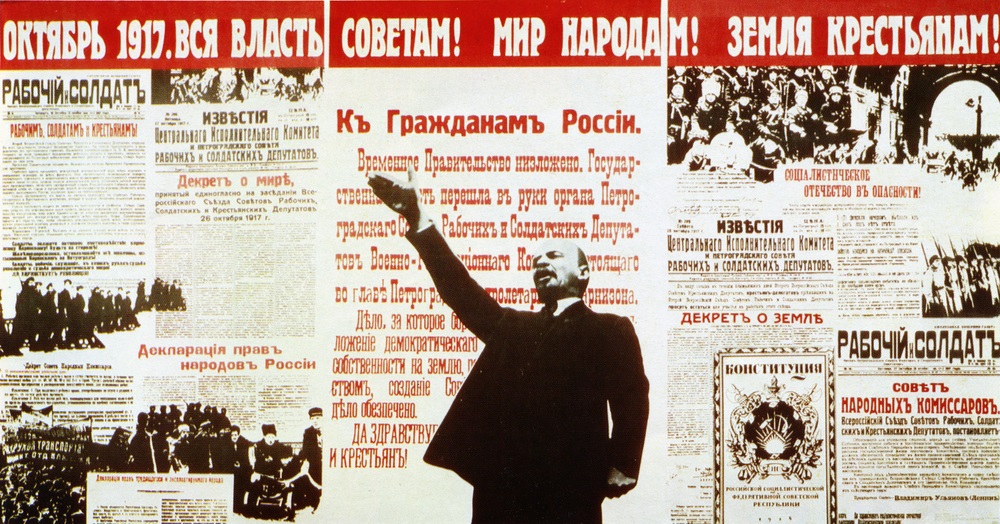The 20th century produced both real and fictional dystopias, but the best known are – such as that of George Orwell. Nineteen eighty-four – originated in liberal democracies. However, they all owe a lot to a novel of one of the real dystopias, Weby Yevgeny Zamyatin from the Soviet Union.
Born in 1887, Zamyatin became a Bolshevik during his student years, was arrested during the 1905 revolution, was twice expelled from St. Petersburg and tried for “defaming the Russian officer corps” with his satires on army life. His hope that the 1917 revolution would bring artistic freedom was soon disappointed: the revolution had not freed artists, but now they had to make art to serve the revolution. In 1921 he wrote:
Much has been said by many about the imperfection of the universe… the astonishing lack of monism: water and fire, mountains and abysses, saints and sinners. What absolute simplicity, what happiness, unclouded by any thought, there would have been if [God] had created from the very beginning a single firewater, if he had spared from the first man the savage state of liberty! …We are undoubtedly living in a cosmic age – an age of the creation of a new heaven and a new earth. And of course we will not repeat [His] wrong. There will be no more polyphony or dissonance. There will only be majestic, monumental, all-embracing unanimity.
In Wewritten in 1920-1921, Zamyatin explored these fears.
It takes place in the One State in the far future, where the main character, D-503, writes:
Every morning, with six-wheeled precision, at the same hour and the same time, we – millions of us – rise as one. At the same hour, in unison with millions of heads, we begin to work; and in million-strong unison we end it. And fused into one body with millions of hands, we at the same moment, designated by the Table, bring our spoons to our mouths. At the same time, designated by the Table, we bring our spoons to our mouths. At the same time we go for a walk, go to the hall, go to the room for Taylor exercises, fall asleep…
The “right” to lower the shades:
…is only awarded on sexual days. At all other times we live behind our transparent walls that seem to be woven from shining air – we are always visible, always washed in light. We have nothing to hide from each other. Furthermore, this makes the Guardians’ difficult and noble task much easier. Because who knows what else could happen? Perhaps it was precisely those strange, opaque dwellings of the ancients that gave rise to their meager cage psychology. “My (sic!) house is my castle.” What an idea!
D-503 is indeed shocked by “those times when people still lived in a free, that is, unorganized, barbaric condition.” In the early days of the Soviet Union, Zamyatin saw Edward Bellamy’s socialist utopia Looking back: 2000–1887 realized and hated it.
Like Adam – or Winston Smith – D-503 is lured into a doomed rebellion. “Those two were given a choice in paradise,” he is told, “happiness without freedom, or freedom without happiness.” Zamyatin assumes that the system works on its own terms can guarantee happiness. History would prove him wrong: these systems produced neither happiness nor freedom. When Orwell was told by a supporter of Soviet repression, “You can’t make an omelet without breaking eggs,” he replied, “Where’s the omelet?”
We refused publication, it first appeared in English in 1924, and a lecture before the Writer’s Union in 1923 provoked attacks from Zamyatin’s fellow writers. Throughout the 1920s, the state-sponsored Russian Association of Proletarian Writers denounced him for “concordance with the revolution” and “slander and slander” of revolutionary beliefs. He was ‘slandering’ again. Fighting his own doomed rebellion, Zamyatin wrote of his fellow writers in 1926: “The revolution has no need of dogs that ‘sit up’ in anticipation of alms or because they fear the whip.” Yet that’s what it got. The flowering of Russian literature, which began with Pushkin, ended, at least for the writers who remained in Russia. Tired, Zamyatin left the Soviet Union in 1931 and traveled to Paris, where he died in 1937.
In 1962, Isaak Asimov wrote that American science fiction had gone through three phases: “adventure dominant,” “technology dominant,” and “sociology dominant,” while Soviet science fiction remained in phase two. “The Soviet people are told, and probably believe, that they are building a new society which, by the sheer attractiveness of its superior workability, will become the dominant society throughout the world,” he wrote. “It would therefore almost amount to a lack of patriotism if a Soviet writer were to suggest that other societies were possible in the future, or even to look too closely at the present one.” Asimov wasn’t entirely right. We is a novel in phase three, one of the greatest of the century.
John Phelan is an economist at Center of the American Experiment.

